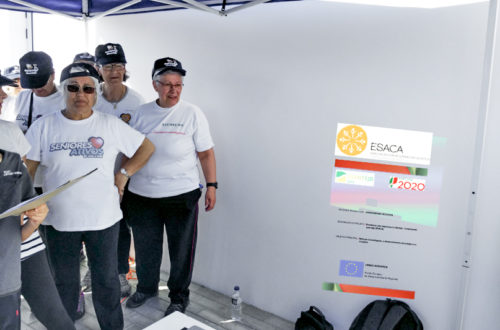Autores
Felismina Mendes, Otília Zangão, Tatiana Mestre
Título
Social representations of violence on the elderly: an injustice and a badness
Publicado
Revista BMC Health Services Research 2018, 18(Suppl 2):O2. p.6
Abstract
Background
In contemporary society, ageing is a phenomenon that marks all de- veloped societies. Portugal is one of the most aged countries in Europe. Currently, Portugal shows a life expectancy at birth of 81.3 years, an average value in terms of EU. Social representations allow access to lay forms of thought, fundamental for understanding social phenomena and their consequences, and for the construction of scientific knowledge itself The Social Representations conduct “the behaviors and the practices and, in this way, justify the positions taken and the behaviors”. Analyzing the social representations of violence on the elderly, from the current and past conceptions and daily practices of the elderly, allows us to have access to the dominant constructions in society about the social phenomenon that is vio- lence and the way it is socially and individually expressed by its main actors.
Objective
To analyze the social representations of a group of elderly people about violence on the elderly and the reasons why this violence occurs.
Methods
Exploratory and descriptive research with qualitative approach, sup- ported by Theory of Social Representations. It was attended by 237 elderly people aged 65-96 years, from the project “Ageing Safely in Alentejo” from University of Évora. The Free Speech Association technique was used and data were processed through qualitative data analysis software. All ethical procedures of human research were followed. Thus, all necessary authorizations for the study were requested, such as informed consent to the elderly. All conditions of anonymity and confidentiality of the responses obtained were also guaranteed.
Results
In social representations of violence on the elderly, the words most evoked by the elderly were injustice, to which were added: mistreatment, badness, bad, lack of respect, sadness, horrible and abandonment. In social representations about the reasons that lead to violence on the elderly, the words such as: lack of respect, lack of education and badness were predominant. These terms refer to the social devaluation of the elderly and their role in today’s society, as in the representations about violence.
Conclusions
The social representations of these elderly people about violence and their reasons points to the stereotypes associated with the prevalent ageism in our society, where the social devaluation of the elderly dominates the daily life conceptions and practices.
Keywords
Social representations, Violence, Elderly, Elderly health, Discrimination


